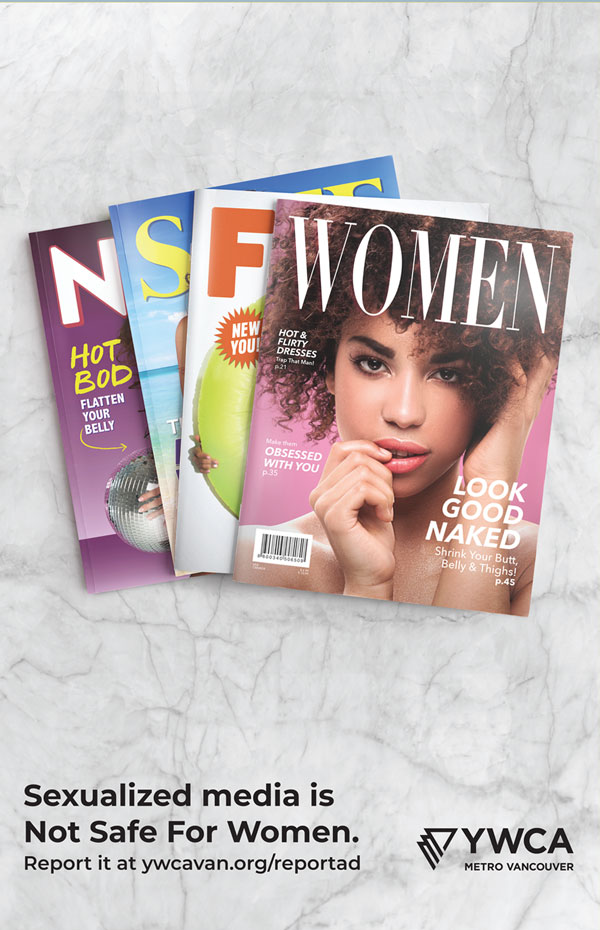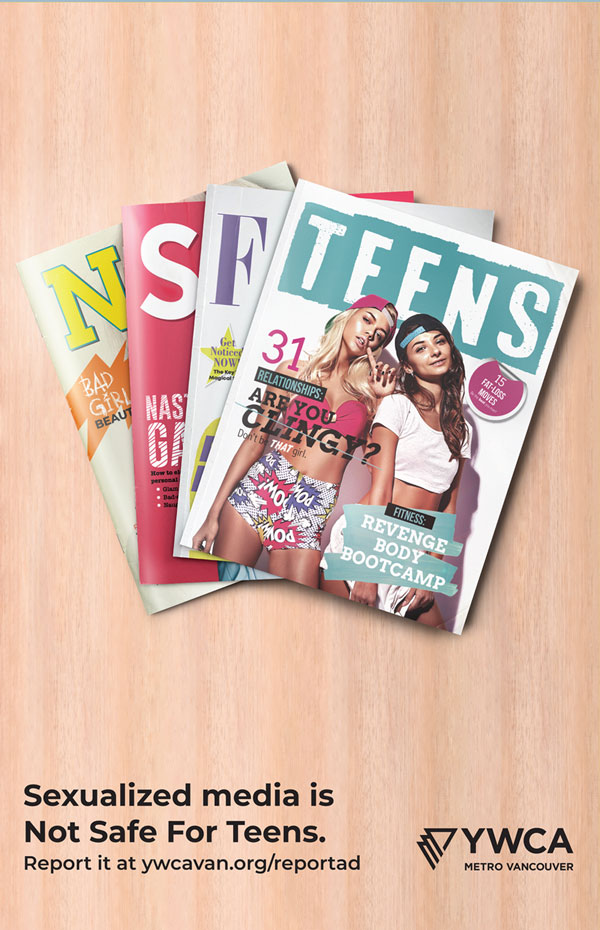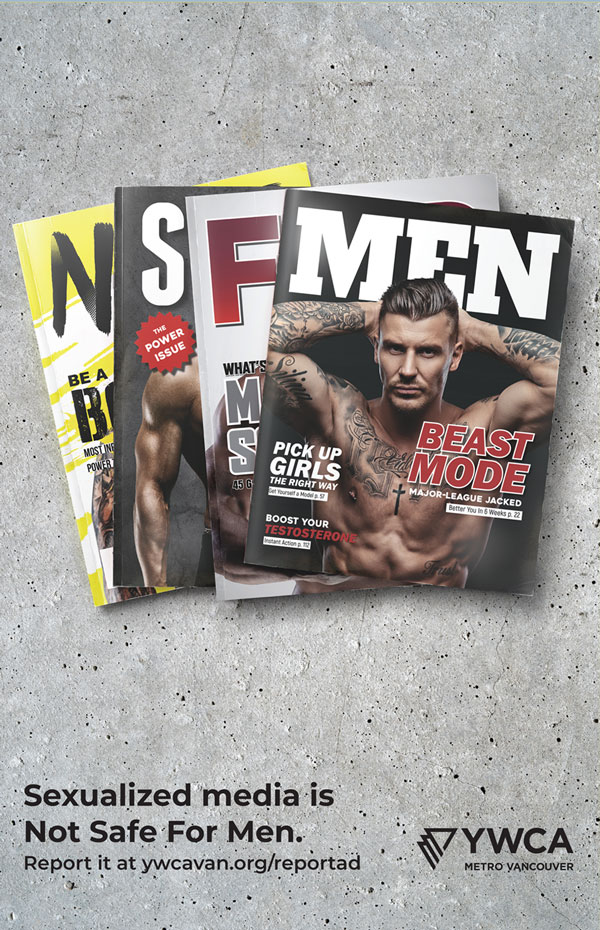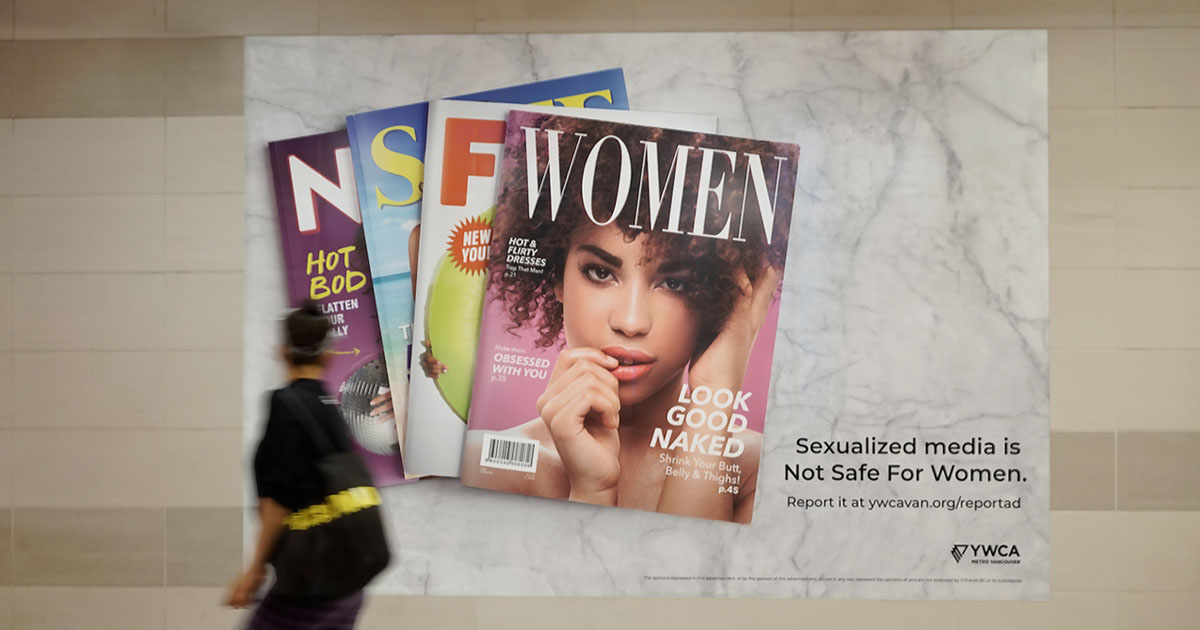
NSFW.
Not Safe For Work – if an email lands in your inbox during your work or school day containing this warning in the subject line, open with caution; you may be about to view something inappropriate.
The NSFW warning first surfaced in 2001. The warning could be found attached to emails, websites or documents that contained sexual, violent or other potentially disturbing content, unsuitable for viewing in public.
Fast forward 20 years to the post-#MeToo era, where we’re arguably more conscious of the widespread existence of sexual harassment, the harms perpetuated by sexism and the importance of working to end the sexualization of women. Given this cultural shift, we need to expand our definition of NSFW content to include the images and media that surround us in our everyday lives.
Whether you’re riding the train to work in the morning, scrolling through social media during your lunch break or watching television at home in the evening, it is virtually impossible to escape imagery that sexualizes or objectifies people.
Media and advertising that sexualizes girls and women or glorifies hypermasculinity, like violence, domination and control, are harmful to all people. Images that reinforce limiting gender stereotypes about what it means to be a man or woman are also not safe – they are linked to individual health issues, relationship difficulties and gender-based violence.
Sexualized media is:
Not Safe For Women
Not Safe For Men
Not Safe For Teens
Our latest YWCA Culture Shift campaign is turning NSFW on its head. It’s making the bold statement that sexualized and hypermasculinized media and advertising are not safe. This campaign encourages people to develop a critical eye so that they can stay healthy and safe in a sexualized media world. We hope it will start a broader conversation about the need to create and promote media that is more diverse and realistic in its representations of people and relationships.



There are many things you can do to take action against sexualized imagery in Canada.
- Teach media literacy to the young people in your life. Help them break through the noise by viewing ads with a critical eye.
- Use our Media Complaints Tool to report ads that sexualize women or glorify hypermasculinity.
- Take action with your wallet – don’t support companies that use sexualized or hypermasculinized ads to sell products.
You have a powerful voice so don’t be afraid to use it! Be media smart, talk to family and friends about media literacy and report problematic media – each action helps to move the needle on outdated practices that perpetuate sexualization. Changing public discourse on these issues is often the first step towards creating or revising the public policy that guides our lives. Major jurisdictions around the globe are creating policies that govern the accessibility and presence of objectifying media in public spaces, and in some cases, these shifts started with one person standing up and speaking out.
Learn more about Culture Shift and our ongoing advocacy work against sexualization and hypermasculinization.



